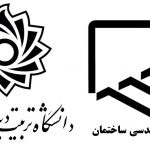New Qualifications and Competencies in TVET
his virtual conference on New Qualifications and Competencies in TVET is moderated by Jan Peter G. de Otero. It is organized as part of the BILT Project, which is coordinated by UNESCO-UNEVOC with the support of the German Federal Institute for Vocational Education and Training![]() (BIBB), and sponsored by the German Federal Ministry of Education and Research
(BIBB), and sponsored by the German Federal Ministry of Education and Research![]() (BMBF).
(BMBF).
Introduction
Globally, technical and vocational education and training (TVET) systems are facing unprecedented challenges, including socio-political issues and trends that are impacting the economy – such as digitalization, sustainable development, and globalization. The current COVID-19 pandemic also reinforces the urgent need for distance learning and for developing TVET qualifications and competencies that are responsive to changing labour markets. Furthermore, despite offering valuable career paths, TVET systems are continuously perceived as less attractive than other forms of education.
Ensuring that TVET systems can provide quality education and training for the current and future world of work is a fundamental concern of policymakers, TVET practitioners and the private sector. Today’s challenges reinforce the need to improve mechanisms to identify and forecast demands regarding qualifications and competencies, with the overall aim to create, reform, and modernize TVET curricula and training regulations. TVET systems must provide attractive learning pathways and lead to future-oriented careers to appeal to young people.
Discussions on how new qualifications and competencies are identified and find their way into TVET practice are an integral part of the Bridging Innovation and Learning in TVET (BILT) Project. The BILT Project promotes exchange and peer learning between European TVET stakeholders, including members of UNESCO-UNEVOC’s global platform of TVET institutions, the UNEVOC Network. Since 2019, the project has brought together TVET stakeholders to discuss how new qualifications and competencies are shaped and implemented at different levels. The discussions helped to develop an initial theoretical framework to map these new qualifications and competencies – the New Qualifications and Competencies Ecosystem.
Against this background, this virtual conference will discuss the identification and implementation of new qualifications and competencies in curricula and training regulations. The outcomes of this virtual conference will also contribute to an ongoing Trends Mapping Study on New Qualifications and Competencies, which will be published in 2020.
Agenda
Threads will be opened for discussion on specific days and will remain open until the end of the virtual conference. Each thread is dedicated to a topic and related questions. The following threads will be opened during this virtual conference.
| Monday, 1 June | Introduction to New Qualifications and Competencies in TVET |
| Wednesday, 3 June | Understanding the demands for New Qualifications and Competencies in TVET |
| Monday, 8 June | Integrating New Qualifications and Competencies in TVET curricula and training regulations |
| Wednesday, 10 June | New teaching and learning approaches and the impacts on teacher and (in-company) trainer training |
Expected outcomes
The virtual conference will cover a broad group of themes and issues, addressing the needs of participants from ministries and umbrella organisations, national TVET bodies, associations, sectorial chambers, TVET schools, companies and other TVET providers. At the end of this virtual conference, participants will be able to:
- Understand the New Qualifications and Competencies Ecosystem framework, its elements and phases (identifying, formalizing and implementing)
- Recognize examples of new qualifications and competencies in relevant TVET sectors and occupations in the fields of greening, digitalization, and entrepreneurship, as well as in the context of migration
- Assess different modes of integrating new qualifications and competencies in TVET curricula and training regulations (cross-cutting, sector-specific, occupation-specific, or additional)
- Identify strategies to improve the responsiveness and flexibility of TVET curricula and training regulations, while respecting national standards
- Describe different teaching and learning approaches, methods, practices, and technologies, as well as understand the impacts of new qualifications and competences for teacher and in-company trainer training
- Recognize different approaches to individualize learning pathways, and the challenges and the benefits of doing so
Join the virtual conference
The virtual conference will take place on the TVeT Forum. You will need to have a UNEVOC account to participate.
The virtual conference will be in English. However, we encourage participants speaking other languages to follow the discussions by using web-based translation services, and to contribute in their native languages.
You can register for a UNEVOC account here
If you are already part of the UNESCO-UNEVOC TVeT Forum community, you can directly participate through the TVeT forum page.




